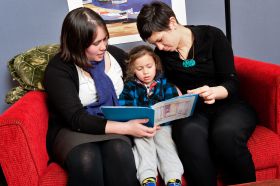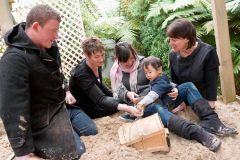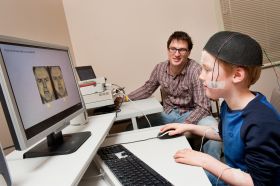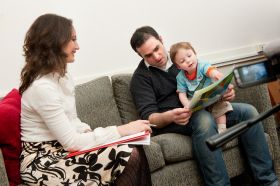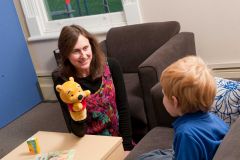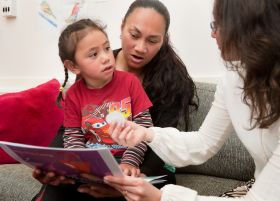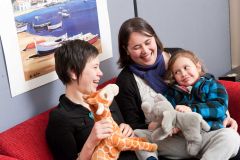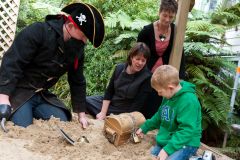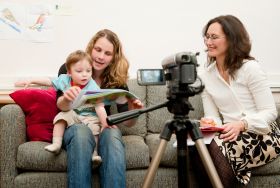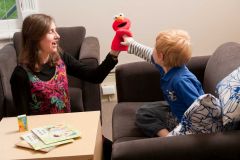What's involved?
Studies either take place at the university or at your home.
All our studies adhere to the standards of the New Zealand Psychological Society and are approved by the Human Ethics Committee of the University of Otago.
Researchers don't assess children's individual performance but instead look at development across groups of about 20+ children.
A typical study at the university
- When we are running a study, we contact volunteer parents describing what it involves and the dates it will be taking place.
- Parents who are interested and available can then arrange a convenient time to come in to the university.
- At the start of your initial visit, the researcher will give you an information sheet about the study and answer any questions you might have. You will be asked to sign a consent form saying that you are happy for your child to take part in the study.
- Our studies usually involve us making video or audio recordings of your child.
- Most studies take 15-30 minutes.
- Free parking is provided.
- Parents are sent a yearly review summarising what the studies have found.
- All the studies are designed to be fun and engaging. There is no pressure for children to take part if they do not want to. If you turn up on the day and your child doesn't want to take part, that is not a problem at all.
A typical home visit
- When we are running a study, we contact volunteer parents who have children in the correct age group to describe what is involved.
- Parents who are interested and available can then arrange a convenient time for a researcher to come and visit them at home.
- We will then send you an information sheet in the post or by email with a letter confirming your appointment.
- At the start of your initial visit, the researcher who comes to your home will check that you received the information sheet and answer any questions you might have. You will be asked to sign a consent form saying that you are happy to take part in the study.
- Our studies usually involve us making video or audio recordings of your child.
- Home visits can last from 30 minutes to an hour.
- Parents are sent a yearly review summarising what the studies have found.
- All the studies are designed to be fun and engaging. There is no pressure for babies to 'perform'. If the researcher turns up on the day and your child doesn't want to take part, that is not a problem at all.
What will happen if you join the volunteer list?
- To carry out research, we rely on the help of hundreds of parents and children who are on our volunteer list. If you join the volunteer list you are not, at this stage, agreeing to take part in a study. You are simply agreeing to be contacted about future studies.
- We will need some basic information for the volunteer list such as your child's date of birth. These details help us to contact the right parents at the right time. For example, in a particular study, we may only need 2-year-old monolinguals.
All your details will remain confidential and won't be shared with any third party.
What happens once you're on the volunteer list?
Once we have received your details, you will be included on our volunteer database. When a suitable study comes up, we will contact you, letting you know when it will be running. If you would like to participate, you would simply arrange a visit time that is convenient for you. If not, you don't need to do anything.
Depending on the age of your child and on which studies we are running we may write to you about a study very quickly or in a few months. Most studies will involve one visit to the university lasting around half an hour.
What should you do now?
If you would like to join the volunteer database, you can:
- Complete the online registration form
- Phone us at 020 4103 8193; or
- Email us at devresearch@psy.otago.ac.nz for a registration form to be sent out to you. We will provide a FREEPOST envelope for you to use to send your contact details back to us.
If you have any queries, please do not hesitate to contact us for further information using the email address listed above.
Back to Baby Scientist's home page
